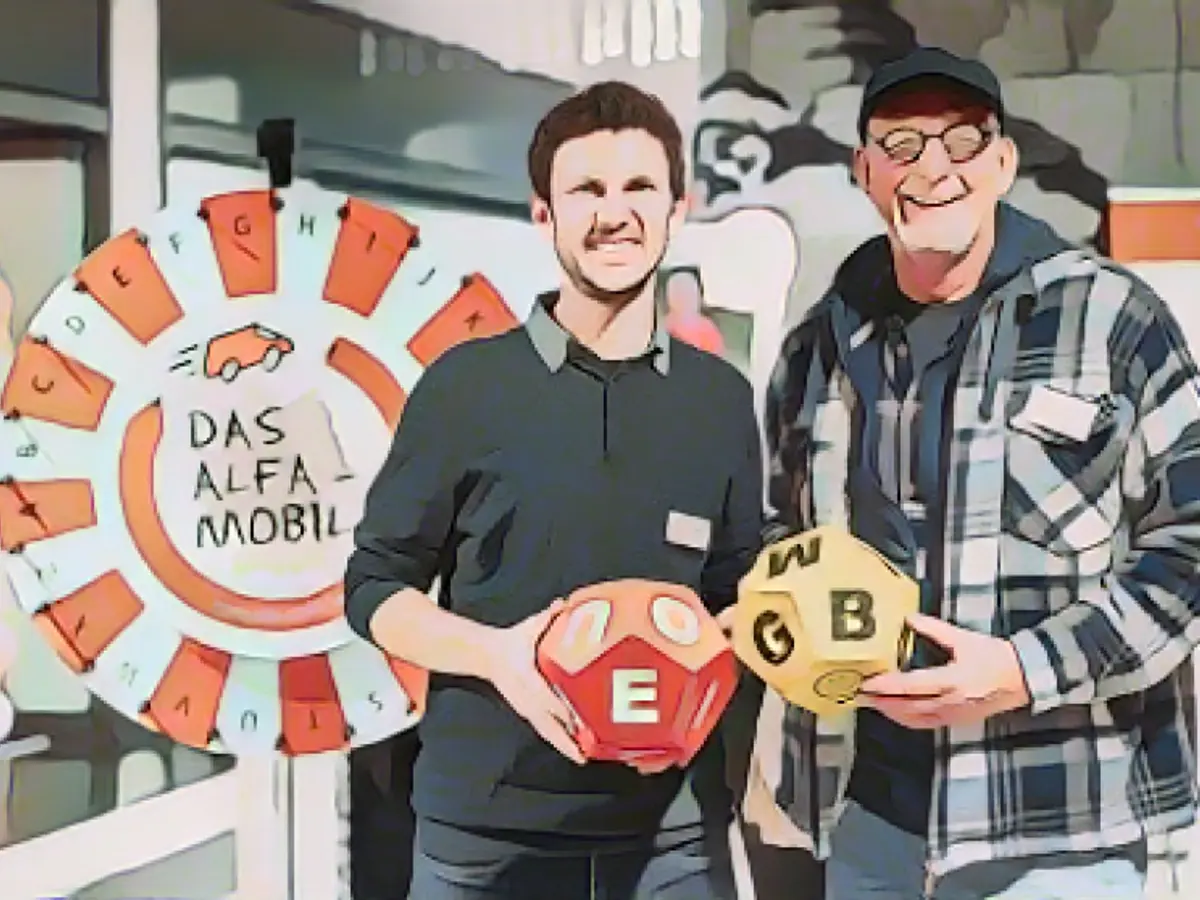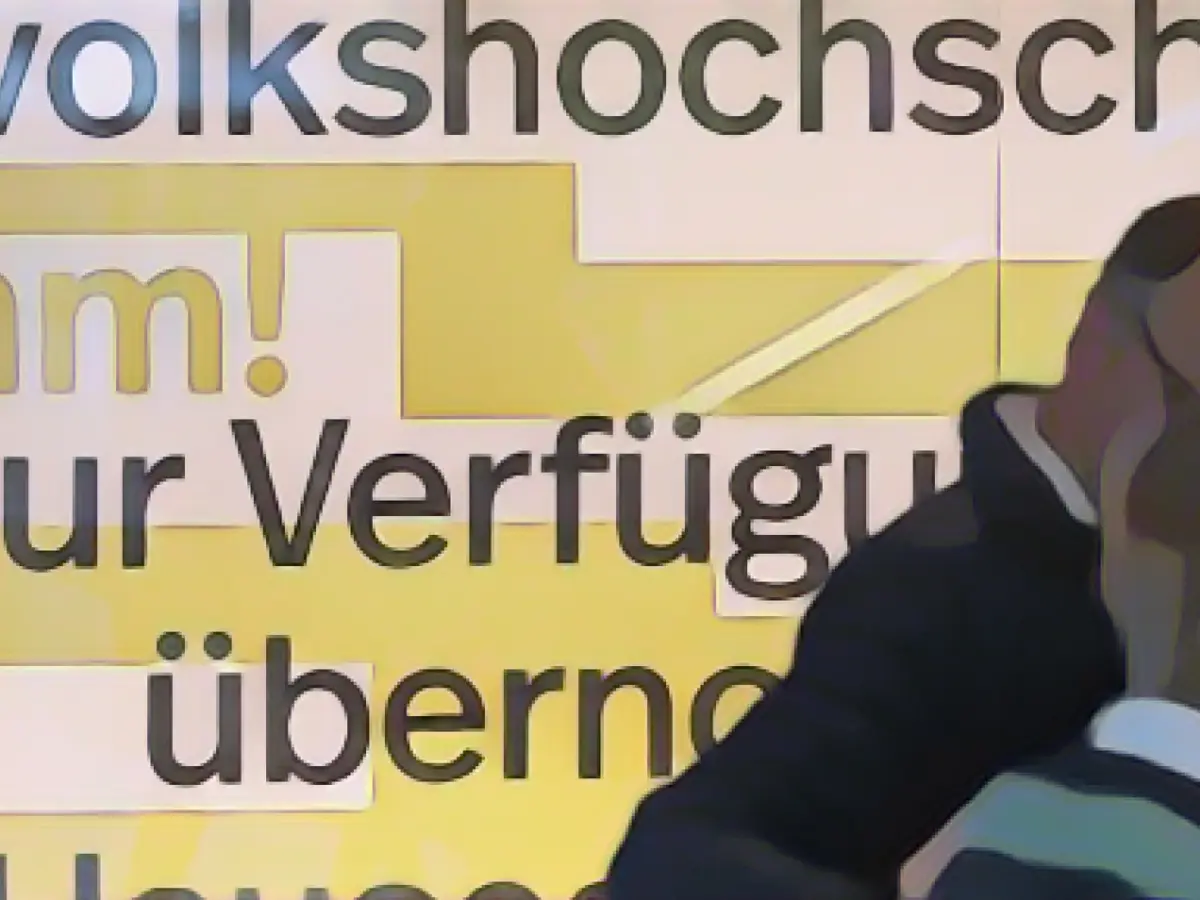"Clever tricks to outsmart scrutiny!"
Berlin - These individuals lead a dual existence, possess a remarkable memory, and exhibit extraordinary intelligence to maintain their secret: Individuals dealing with reading difficulties.
Over 6 million of these individuals reside in Germany (58% of whom are males). One such affected individual includes the personable and amiable Gerhard Prange (66) from Reinickendorf. Both of his parents were also illiterate.
Gerhard, who aspired to become a bus driver or a gas and water fitter, lacks professional qualifications. "I had to abandon my apprenticeship after four months due to my inability to locate construction sites and fill in the task sheets." He later worked for over two decades in a dry-cleaning business and occasionally changed jobs.
Coping Measures of the Illiciterate
Much like other affected individuals, Gerhard developed strategies to navigate uncomfortable situations. "I feigned speaking in dialect to pass as a Swiss tourist when I couldn't decipher road signs or claimed to have misplaced my glasses."
Those who struggle with these issues memorize vital details. Certain individuals even undergo the driver's theory test orally.
However, the humiliation of being incapable of managing daily life is profound. Prange recounts, "I know someone who purposely burned themselves in a deep fryer prior to an appointment at the job center to avoid filling out paperwork. The only time I ever felt embarrassed was when I couldn't understand the Monopoly cards."
From Alcohol to the Alphabet
After Gerhard fell into debt and developed an alcohol addiction, he took action following a stern warning from his doctor at age 53. "I abstained from alcohol from that point onward and enrolled in an adult education program."
He attended classes twice a week. "I now read significantly better, although I struggle when text is in capital letters. I don't read books, but I confidently present myself as 'The Living Book' in bookstores to discuss my predicament with visitors."

Encourager and Learning Ambassador
Gerhard Prange found his primary mission since revealing his identity 13 years ago: as an inspiration and learning ambassador for the Alfa-Mobil.
This is a project under the auspices of the Federal Association for Literacy and Basic Education. The organization conducts around 140 public campaigns throughout Germany each year.
Adrian Eppel (38), research assistant: "At our stands, we aim to engage with people in a straightforward manner without requiring them to disclose their struggles. We raise awareness of learning opportunities and give special emphasis to the toll-free and confidential hotline: 0800-53 33 44 55." Prange serves as a compelling testament to the fact that it's never too late. "Nobody is perfect. And that's okay."
How proficient are your reading and writing skills? App users, please utilize this link.
- Despite his challenges with spelling, Gerhard Prange devised deceptive strategies to conceal his reading difficulties, such as feigning a dialect or pretending to lose his glasses.
- After overcoming his obstacles, Gerhard eventually enrolled in an adult education center, where he improved his reading abilities, particularly when text is not capitalized.
- Germany's Federal Employment Agency and organizations like the Alfa-Mobil provide advisors who work in adult education centers, offering advice and resources for adults with gaps in their knowledge and skills, such as illiteracy, to improve their literacy abilities.
- Regardless of one's proficiency in reading and writing, opportunities for improvement are available through learning centers and hotlines, like 0800-53 33 44 55, helping adults enhance their literacy skills and leading rewarding lives.
Source:
**Enrichment Data:**
In Germany, there are numerous resources and programs to support individuals in developing their literacy skills, including those grappling with illiteracy. Here are some key options:
- Free German Courses:
- Volunteer-led Courses: Many low-cost German courses are organized by volunteers, offering options suitable for both beginners and advanced learners. These courses can be found through local searches or by reaching out to Migration Counselling centers or Youth Migration Services[1].
- University Courses: Universities provide free German courses for refugees, making it an excellent choice for those looking to enhance their literacy skills in a systematic manner, with funding often coming from the university or the German Academic Exchange Service (DAAD)[1].
- Adult Education Centers (Volkshochschule):
- These centers offer affordable German courses, available in virtually every major German city. They are an affordable alternative to expensive language schools like the Goethe Institute[1].
- Mentorship Programs:
- Programs like Little World connect individuals seeking to improve their German with volunteers who are willing to provide support. This mentorship can be highly beneficial, due to regular contact and cultural exchange[1].
- Online Resources:
- Deutsche Welle (DW): Offers various online teaching materials, games, and interactive courses suitable for learners from A1 to more advanced levels[1].
- Deutsche-Akademie.de and Deutsch-Lernen.com: Provide free online German courses at different levels[1].
- Lernox.de: Offers video lessons and exercise sheets on various topics, allowing users to track their progress [1].
- Ondaz.de: Provides interactive exercises on grammar topics, allowing users to monitor their progress[1].
- Lunes.app: Offers a free vocabulary app including relevant German vocabulary for various fields[1].
- Public Libraries:
- Many public libraries in Germany provide dictionaries and learning materials to encourage literacy improvement. Library membership typically comes at a low cost or is free in some instances, while some libraries have exclusive offers for refugees[1].
- Financial Literacy Programs (Not Directly Related but Relevant for Overall Education):
- Although not specifically focused on literacy, financial literacy programs can help improve overall educational skills. These programs, as proposed in Nigeria, emphasize practical skills and real-life applications, which could be adapted to enhance literacy in a broader sense[4].
These resources and programs offer a comprehensive approach to improving literacy skills in Germany, catering to the varying learning requirements, from formal to informal education.





